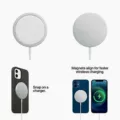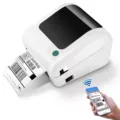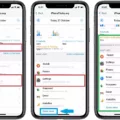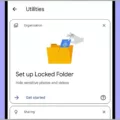In today’s digital age, our smartphones have become an essential part of our lives. We use them for communication, banking, social media, and much more. However, with the increasing use of smartphones, the risk of spyware has also increased. Spyware is a type of malicious software that is designed to secretly gather information from your device without your knowledge or consent. If you suspect that your iPhone may be infected with spyware, here are some signs to look out for:
1. Decreased battery life: One of the most common signs of spyware on an iPhone is a sudden decrease in battery life. If you notice that your battery is draining faster than usual, even when you’re not using your phone, it could be a sign that spyware is running in the background and consuming your device’s resources.
2. Increased data usage: Spyware often requires an internet connection to transmit the information it collects from your device. As a result, you may notice a significant increase in your data usage. If you find that your data usage has spiked without any explanation, it could be a red flag for spyware.
3. Slow performance: Spyware can also impact the performance of your iPhone. If you notice that your device is running slower than usual, apps are taking longer to open, or there is lag when navigating through menus, it could be a sign that spyware is present.
4. Unusual background noise during calls: Spyware can sometimes interfere with your phone calls, causing strange background noises or echoes. If you consistently experience unusual noises during your calls, it’s worth considering that your iPhone may be compromised.
5. Pop-up ads and browser redirection: Spyware often injects unwanted advertisements into your browsing experience. If you start seeing an unusual amount of pop-up ads or experience frequent browser redirections to unfamiliar websites, it’s possible that spyware is to blame.
6. Suspicious text messages: Spyware can also send and receive text messages without your knowledge. If you notice any unusual text messages, such as random numbers or strange content, it could indicate the presence of spyware on your iPhone.
7. Unexplained app activity: Spyware may interact with your apps in unusual ways. You may notice that apps are opening or closing on their own, settings are changing without your input, or unfamiliar apps appear on your device. These occurrences could be signs that spyware is present.
Protecting your iPhone from spyware
To protect your iPhone from spyware, it is important to take some preventative measures. Here are a few tips to keep your device secure:
1. Download apps only from the App Store: Stick to downloading apps from the official App Store, as Apple thoroughly vets the apps available on their platform. Avoid downloading apps from third-party sources, as they may contain malicious software.
2. Keep your iPhone software up to date: Regularly update your iPhone’s operating system to ensure that you have the latest security patches. Apple frequently releases updates that address security vulnerabilities, so it’s important to stay up to date.
3. Be cautious with links and attachments: Avoid clicking on suspicious links or opening attachments from unknown sources, as these can be vehicles for spyware.
4. Use strong, unique passwords: Protect your iPhone by using strong, unique passwords for your device and all your online accounts. This will make it harder for spyware to gain access to your personal information.
It’s important to be aware of the signs of spyware on your iPhone and take steps to protect your device. If you suspect that your iPhone may be infected with spyware, consider seeking professional help or consulting Apple support. By staying vigilant and following best practices for cybersecurity, you can help safeguard your iPhone and your personal information.
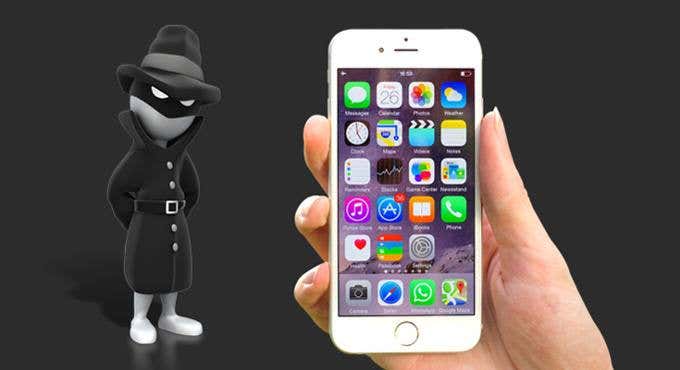
How Can You Tell If Your iPhone Has Spyware?
There are several signs that can indicate the presence of spyware on your iPhone. It is important to be aware of these signs in order to protect your privacy and security. Here are some key indicators to look out for:
1. Decreased battery life: If your iPhone’s battery is draining faster than usual, it could be a sign of spyware running in the background.
2. Increased data usage: Spyware often requires data to upload the information it collects. If you notice a sudden and significant increase in your data usage, it could be due to spyware activity.
3. Slow performance: Spyware can consume system resources, leading to slower performance. If your iPhone is noticeably slower or lagging, it may be a result of spyware.
4. Unusual background noise during calls: Spyware can sometimes cause strange noises or interference during phone calls. If you hear unusual sounds or disruptions, it could be a sign of spyware.
5. Pop-up ads and browser redirection: If you are constantly bombarded with pop-up ads or your web browser is frequently redirecting to unfamiliar websites, it could be a sign of spyware on your iPhone.
6. Suspicious text messages: If you receive unusual or suspicious text messages, such as random links or messages with strange content, it could be an attempt to install spyware on your device.
7. Unexplained app activity: If you notice unfamiliar or strange apps appearing on your iPhone, or if your apps behave unexpectedly (crashing, freezing, etc.), it could be a sign that spyware has been installed.
To protect your iPhone from spyware, it is essential to follow best practices such as:
– Download apps only from the App Store, as Apple has stringent security measures in place to prevent the distribution of malicious software.
– Keep your iPhone’s operating system and apps up to date, as updates often include security patches that can help protect against spyware.
– Be cautious when clicking on links or downloading files from unknown sources, as they may contain spyware.
– Regularly scan your iPhone for malware using reputable security apps available on the App Store.
By being vigilant and aware of these signs, you can take proactive steps to detect and remove spyware from your iPhone, ensuring the privacy and security of your personal information.
Can You Use Spyware On An iPhone?
Spyware can be used on iPhones, but there are certain conditions that need to be met. Typically, iPhones that have been jailbroken, which means the device’s operating system has been modified to remove certain restrictions imposed by Apple, can be vulnerable to spyware installation. Jailbreaking allows users to download apps and tweaks that are not available on the official App Store, but it also opens up the possibility for malicious software to be installed.
In the case of non-jailbroken iPhones, it is generally more difficult to install spyware. Apple has implemented strong security measures to prevent unauthorized software from being installed on their devices. However, it is still possible for someone to target a non-jailbroken iPhone with spyware if they can gain physical access to the device and install a monitoring app without the owner’s consent.
It’s worth noting that not all monitoring apps are considered spyware. For example, parental control tools that are installed with the knowledge and consent of the device owner are not typically classified as spyware. However, if someone installs a monitoring app on your iPhone without your consent, it can be considered spyware.
To protect your iPhone from spyware, it is important to keep your device updated with the latest software version provided by Apple. This ensures that you have the most up-to-date security features and patches for any potential vulnerabilities. Additionally, it is recommended to only download apps from the official App Store and avoid installing apps from unfamiliar sources. Lastly, be cautious about lending your iPhone to others or leaving it unattended to minimize the risk of unauthorized access and potential spyware installation.
How Can You Tell If Your Phone Has a Spy App On It?
There are several signs that may indicate the presence of spyware on your phone. Here are some key indicators to look out for:
1. Battery Drain: If you notice that your phone’s battery is draining faster than usual, it could be a sign of spyware. Spy apps often run in the background, consuming additional power and causing your battery to deplete more quickly.
2. Overheating: Spyware can also cause your phone to overheat. If your device feels unusually hot even when you’re not using it extensively, it may be worth investigating for potential spyware.
3. Strange Behavior: Spy apps can interfere with the normal functioning of your phone. If you notice unexpected behavior such as apps crashing or freezing, slow performance, or unusual error messages, it could be an indication of spyware.
4. GPS and Location Settings: Spyware may enable GPS and location functions on your phone without your knowledge. If you notice these settings turning on or off unexpectedly, it’s a red flag that something may be amiss.
5. Random Reboots: Spy apps can trigger your phone to reboot randomly or shut down unexpectedly. If this occurs frequently and without any apparent reason, it’s worth investigating further.
6. Unusual Data Usage: Spyware may consume data in the background as it transfers information from your phone to the spy app’s server. If you notice a sudden increase in data usage without any changes in your own usage patterns, it could be a sign of spyware.
7. Unfamiliar Apps: Check your phone for any unfamiliar apps that you don’t remember installing. Spyware often disguises itself as a legitimate app, so it’s essential to review your installed apps regularly.
8. High Data Usage by Apps: Monitor the data usage of individual apps on your phone. If you notice an app consuming a significant amount of data despite limited usage, it could be a spy app sending information from your device.
If you suspect that your phone has spyware, it’s crucial to take action to protect your privacy. Consider scanning your device with reputable antivirus or anti-spyware software to detect and remove any malicious apps. Additionally, be cautious when downloading apps from third-party sources and regularly update your device’s operating system and apps to minimize the risk of spyware intrusion.
Conclusion
Spyware on iPhones can pose a significant threat to the user’s privacy and security. While typically associated with jailbroken devices, non-jailbroken iPhones are not immune to spyware attacks either. It is important to be vigilant and aware of the signs that may indicate the presence of spyware on your iPhone.
Some common signs of spyware include decreased battery life, increased data usage, slow performance, unusual background noise during calls, pop-up ads and browser redirection, suspicious text messages, unexplained app activity, and unexpected changes in settings.
To protect your iPhone from spyware, it is recommended to download apps only from the official App Store and avoid installing unauthorized or suspicious applications. Regularly update your iPhone’s operating system and apps to ensure that you have the latest security patches. Additionally, be cautious when sharing personal information or clicking on unfamiliar links, as these can be used to install spyware on your device.
If you suspect that your iPhone may be infected with spyware, it is advisable to run a thorough security scan using reputable antivirus or anti-spyware software. If necessary, seek professional assistance to remove the spyware and secure your device.
By staying informed and taking proactive measures, you can protect your iPhone from spyware and safeguard your privacy and personal information.



